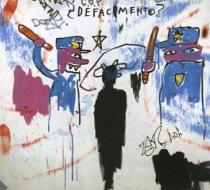How Jean-Michel Basquiat's Art Challenges Status Quo Favorite
Jean-Michel Basquiat was an American artist who rose to fame in the 1980s. He is known for his graffiti-inspired paintings that often engage with issues surrounding racism and inequality. Basquiat's work challenged the status quo and incited a powerful social commentary on the struggles of marginalised social groups.
Basquiat rose to success during the 1980s as part of the Neo-expressionism movement. He found a mentor and friend in Andy Warhol, who helped the young artist navigate the New York art world at that time. One of the defining features of Basquiat’s art was his use of symbols and motifs. Across his body of work, Basquiat drew on his own Caribbean heritage, as well as a convergence of African American, African, and Aztec cultural histories, classical themes, and pop cultural figures including athletes and musicians. This mix of influences helped to create a unique and distinctly modern aesthetic that was both innovative and timeless. His paintings were highly symbolic in nature and often focused on what he saw as intrinsic dichotomies, such as the wealthy versus the impoverished or integration versus segregation.
In some of his most powerful works, Basquiat directly addressed issues of racial justice and police brutality. In his painting “Defacement (The Death of Michael Stewart),” he depicted the 1983 brutal beating of a young, Black artist, Michael Stewart, by New York City transit police. He was distraught, friends recall. “It could have been me,” Jean-Michel Basquiat would say at the mere mention of Stewart’s death. The painting, in somewhat of a departure from his typical style, was a powerful indictment of police violence and a haunting reminder of the ongoing struggle for racial justice. It was not painted on canvas, but on the dry wall of a fellow artist’s studio, and was later cut out and framed. Read more about this story here and here.
In addition to addressing issues of racial justice in his art, Basquiat was also an activist in his own right. He was a vocal advocate for the rights of Black artists and was involved in a number of organizations that sought to promote equality and justice. His painting “Hollywood Africans” depicts Basquiat with friends, the artists Toxic and Rammellzee. The painting represents a commentary on the stereotyping and marginalizing of African Americans in the entertainment industry, and the ways in which Black artists and performers are often excluded from mainstream culture and relegated to stereotypes. This theme led these three artists to coin the term and refer to themselves as the “Hollywood Africans.”
(from myartbroker.com & brownicity.com)







